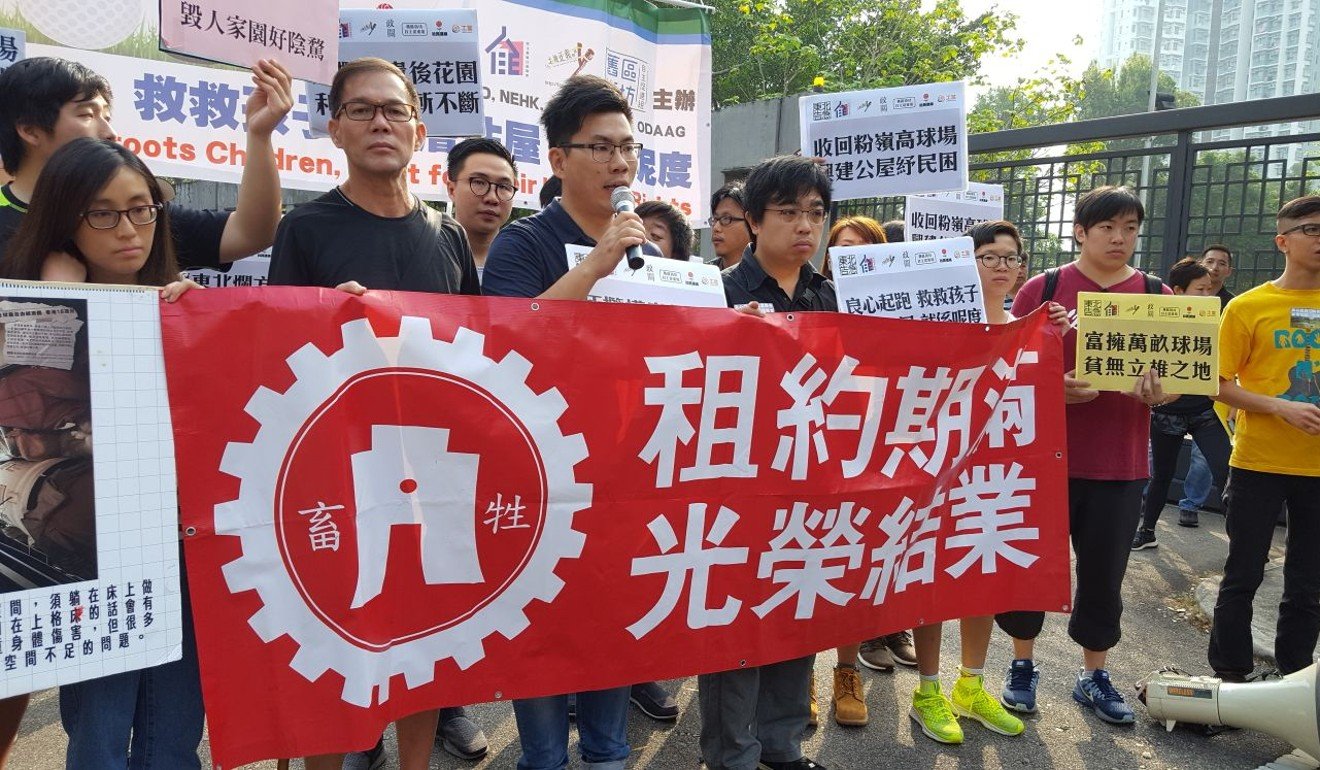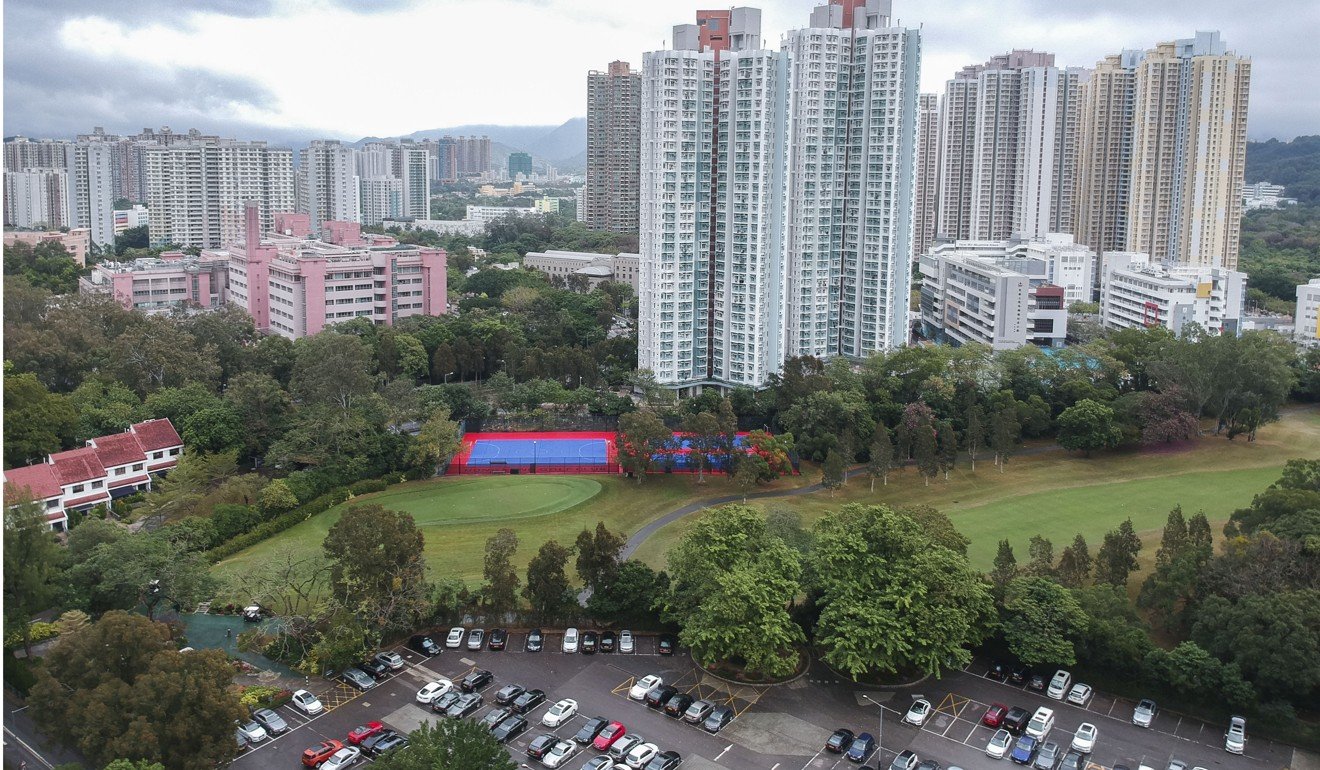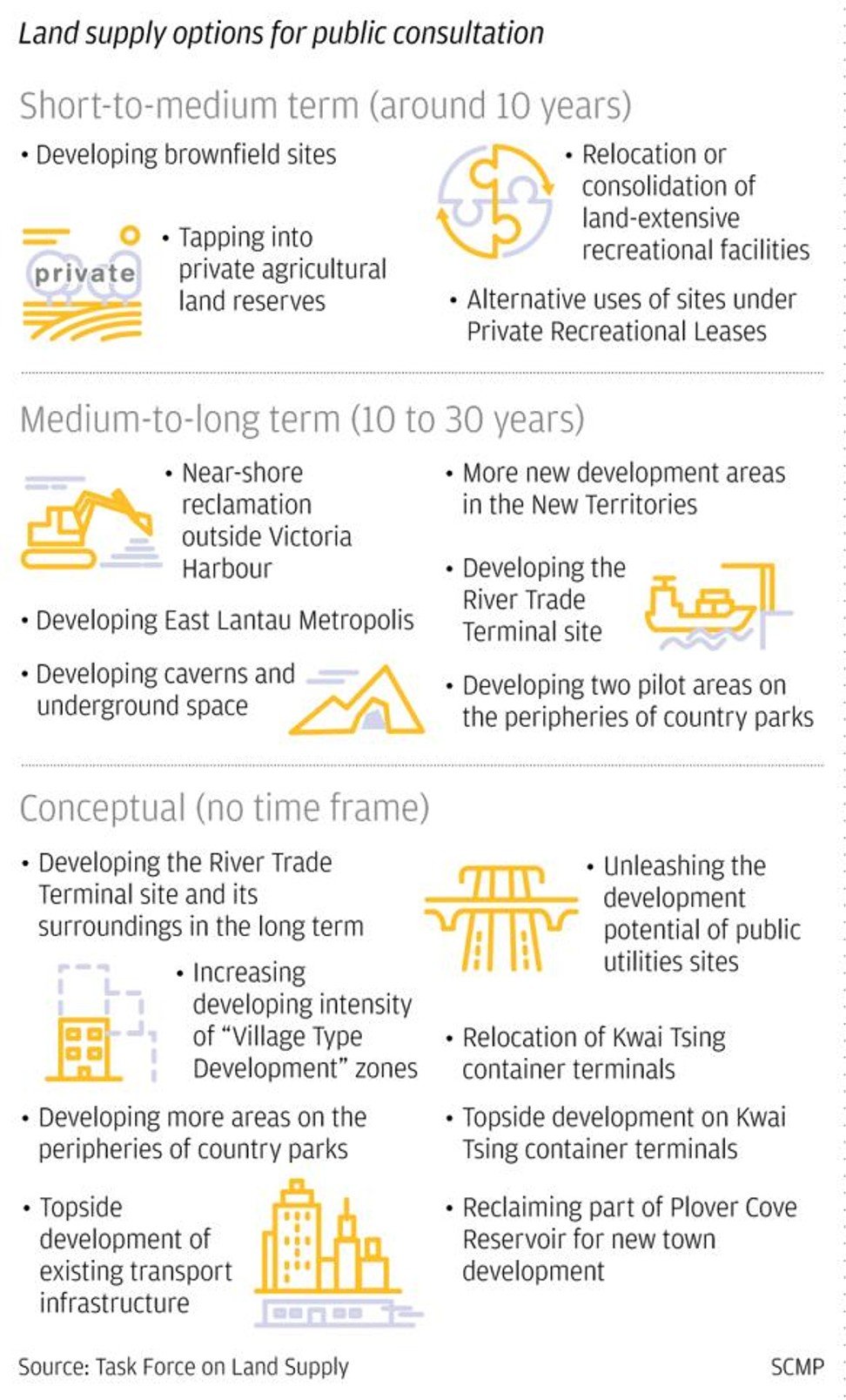
Hong Kong Golf Club vows not to give up any part of Fanling course for housing
Captain vows to ‘use every means to fight for the integrity’ of historic course
The private club that runs the 170-hectare Fanling golf courses has said it will fight to ensure not even part of it is used for housing development, warning it will take legal action if needed.
With billions of dollars in corporate memberships at stake, the elite 129-year-old Hong Kong Golf Club, one of Asia’s oldest, said it would stand firm against any plan that would see part or all of the historic site razed to help address the city’s chronic housing problems.
The site, run by the club since 1911 under a government lease which expires in August 2020, has become a battleground between the city’s haves and have-nots, with calls mounting for the government to take back the land.

However, club captain Arnold Wong vowed the club would do whatever it could to safeguard the integrity of the course and would not accept any proposal to redevelop even part of the site.
“We’ll use every means to fight for its integrity. We will keep all options open,” he said. “Right now it’s still too early to talk about taking legal action. But we will consider all options if necessary.”
“Why would some people want to ruin such a beautiful place just for the sake of political wrangling?” he asked.
‘Golf club getting picked on in housing shortage debate’
An insider said the controversy could boil over into a series of judicial reviews if the government eventually decided to take back the site either for partial or full development.
It is understood such a decision could greatly affect the interests of the club’s 365 corporate members, involving as much as HK$6.2 billion (US$790 million) as each corporate membership has a tradeable value as high as HK$17 million.
Multinational banks such as HSBC and Standard Chartered, accounting firm KPMG and insurer AIA Group are among its corporate members.
“There are many reasons for launching a judicial review, such as those affecting the interests of corporate members as they paid as high as HK$17 million to purchase a corporate membership. Who can compensate their loss?” the source asked.
“It could also be argued that the members’ right of use would be deprived due to the development move and the livelihoods of the city’s golf practitioners would be adversely affected too.
“Reclaiming the site for redevelopment would run contrary to the government’s sports policy and send a bad message to investors that the government can easily change its policies due to populist pressure.”

About 140,000 people play golf in Hong Kong and there are about 3,000 practitioners including coaches, caddies and driving range workers.
Wong said the course was critically important to the sport’s development as it was the only site with essential facilities for hosting major international tournaments such as the Hong Kong Open – held at Fanling for the past 59 years – and the Hong Kong Ladies Open.
“This place also serves as a major training ground for junior golfers. Any redevelopment plans will jeopardise the development of golf in Hong Kong,” he said.
Keep off the grass! Golfers’ alliance enters Hong Kong housing debate
The task force has put forward two options: either developing a 32-hectare site, known as the Old Course, into 4,600 flats, or developing the whole area for 13,000 flats.
Wong argued that the site was not suitable for any housing development as 40 per cent comprised woodland with more than 30,000 trees, and it was also home to more than 100 ancient graves and urns as well as some historic buildings.
“All these beautiful features, once destroyed, cannot be replicated elsewhere. Building housing on such a historic golf tournament venue of over 100 years would destroy its hard-earned heritage,” he said.
Wong said the club would commission a comprehensive study detailing all expert opinions on why it was technically infeasible to use the site for housing development and the report would be submitted to the government and the task force.
He also said many of the task force members had never visited the site and were not being fair, and asked if private developers building luxury flats would end up benefiting.
“Some task force members didn’t even make an attempt to visit this place. How can they make an informed decision without knowing this place? Some members have preconceived ideas,” he said.
However, task force chairman Stanley Wong Yuen-fai said the panel’s duty was to identify sites that had the potential to meet future needs for housing and economic development and it would be for the government to decide the proper planning of each site.
Five key things you need to know about Hong Kong’s land crisis
“We have to examine the development potential of many sites across Hong Kong and it is not necessary for members to visit each site to have an informed idea on how it can be developed,” he said.
He said he did not have any stance about the use of Fanling golf course but he understood that some members might have their own views on the issue.
“I don’t want to see the golf course become a battlefield between different stakeholders and I hope they keep an open and tolerant attitude about it. In the end, we will just truly reflect the majority views of the public to the government and let it decide,” he said.


